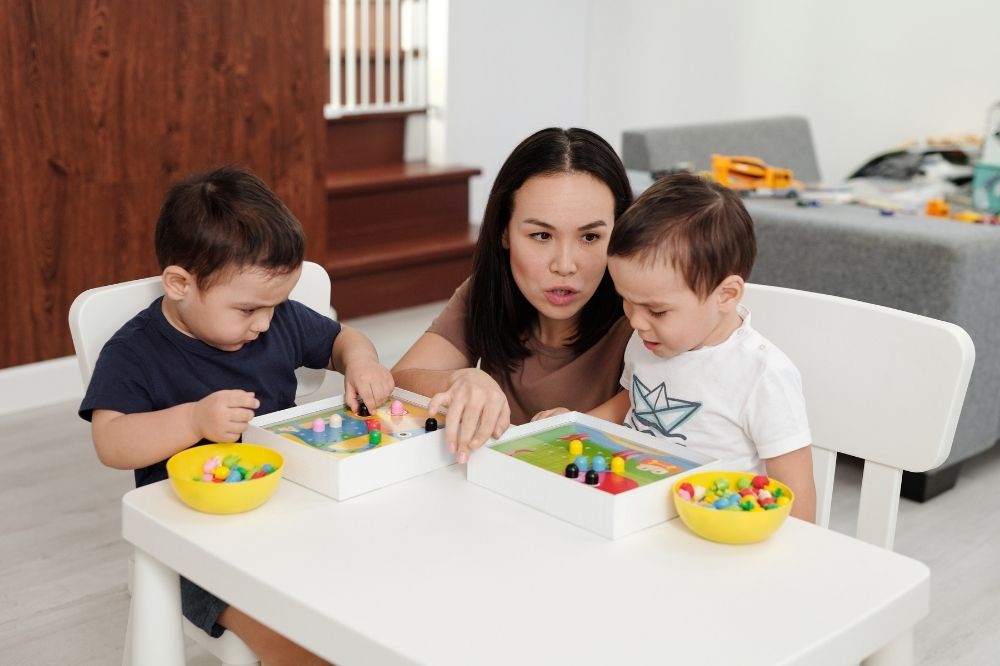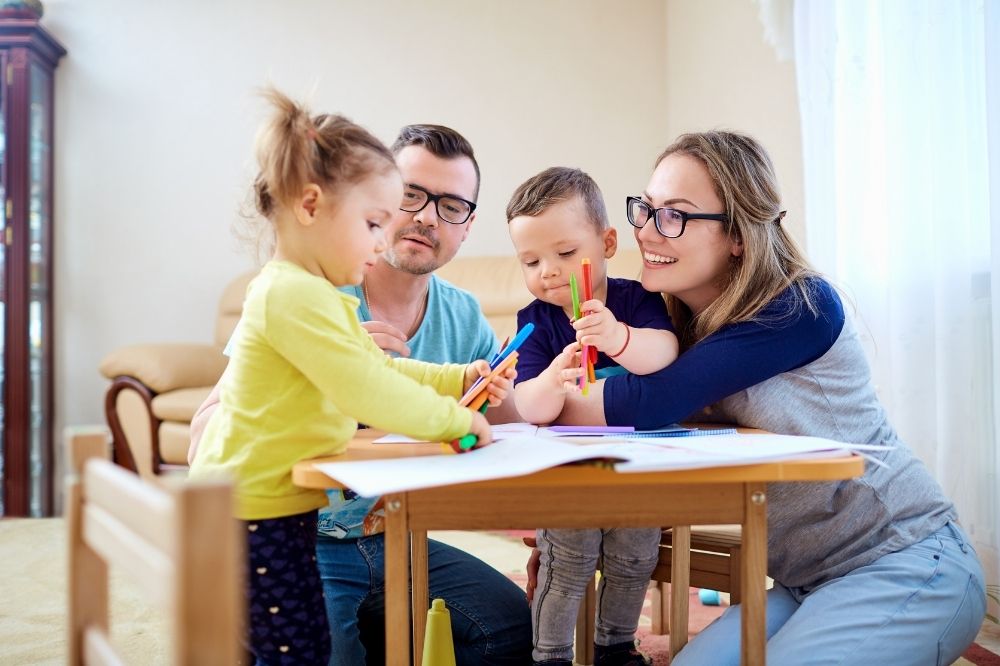Keeping bedtime stories, sticky fingers, and snack bargaining in some combination is work in itself. So when the conversation about “early education” arises, it’s easy to begin to feel the pressure mount. But the truth is—working with a child’s early learning journey does not mean parents are going to learn to do phonics or set up a mini classroom at home. It’s not about becoming a stand-in teacher; it’s about being present in the mundane, daily, and rich moments.
Early learning isn’t worksheets and ABC songs—it’s discovery, discussion, play, and relationship. And parents are just in the perfect position to make that magic in the everyday moments.

Establishing a Foundation of Curiosity
Kids are naturally curious. They have 1,000 questions before lunch and marvel at a rock or a cardboard box. Parents have a critical role to play in spurring that curiosity—not by knowing everything, but by inspiring the questions.
It starts with something as mundane as labeling things, while strolling, pausing to remark on ants transporting a crumb, or apple counting at the shop. These small moments build vocabulary, foster curiosity, and develop relationships. All it takes is engagement, not expertise.
- Ask open-ended questions: “What do you think will happen when we add water?”
- Space to explore: Messy art, free play, and nature walks are learning.
- Model enthusiasm: If adults become excited about learning and books, children will do the same.
Building Habits That Teach
No reinventing the wheel—the routines are already full of teachable moments. Dressing, tooth brushing, conversations at meals… all of these offer opportunities to encourage independence and confidence.
Rhythm forms the foundation for early learning. Routine makes children feel safe, and out of that safety, they learn sequence, language, and responsibility.
- Clean up while singing along
- Track steps or stairs during morning rush
- Stack utensils or socks—hello, early math!
By involving children in everyday chores and walking them through it, parents are already laying strong foundations unconsciously.
Working with Early Childhood Teachers
The educator-parent partnership is not drop-off and pick-up—it’s a collaboration. Center or home program, or even a pre kindy near me that I located during midnight Googling, maintaining contact with educators can assist in supporting learning at home.
Asking how their day was, knowing what skill they are practicing, or just catching them up on what is happening at home builds a balanced approach. It informs children that everyone is in it together to help them develop—and that counts.
It’s also helpful to mirror school or care practices and approaches at home. This gives consistency and is easy to adapt, especially in that vulnerable toddler stage when any change can feel enormous.
Encouraging Emotional Learning
Numbers and letters are significant, but so are emotions and friendships. Among the single biggest contributions parents can make to early learning is emotional guidance. That’s the behind-the-scenes work that helps children with emotions, communicating, and getting along with others.
- Recognize emotions: “You seem frustrated. Would you like to discuss it?”
- Be patient: Waiting their turn or taking turns with a toy doesn’t always come naturally.
- Model acts of kindness: Kids watch closely—even when they seem to be tuning out.
By establishing such safe spaces in which to weep, to laugh, or to speak, parents establish the emotional strength children require to succeed in any school setting.
Staying Down-to-Earth and Realistic
Today’s world is full of comparison traps. Pinterest-perfect activity boards, shiny parenting blogs, and childcare marketing campaigns may make you think early learning has to be flash and complex. But the truth is, the most influential learning is in the quiet, mundane moments that aren’t shared on Instagram.
Parents do not need teaching certificates to be effective. They just need to appear, be present, and be willing to get involved in the messy but beautiful process of childhood. Early childhood education is not about being perfect—it’s about relationships. And parents, currently, are already doing that.

